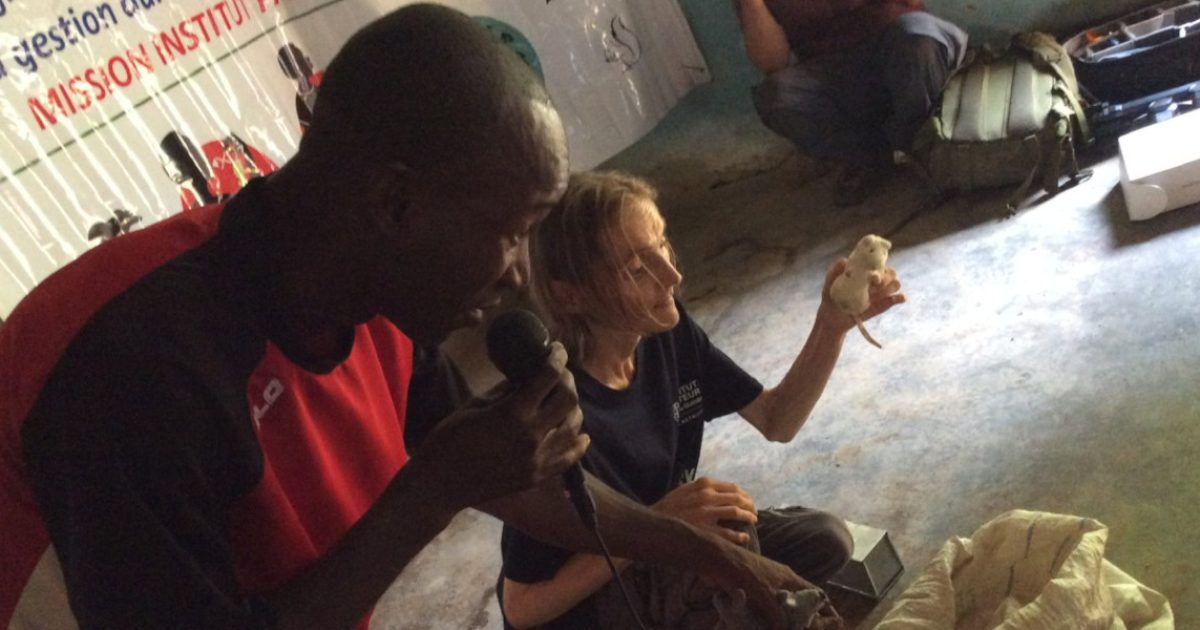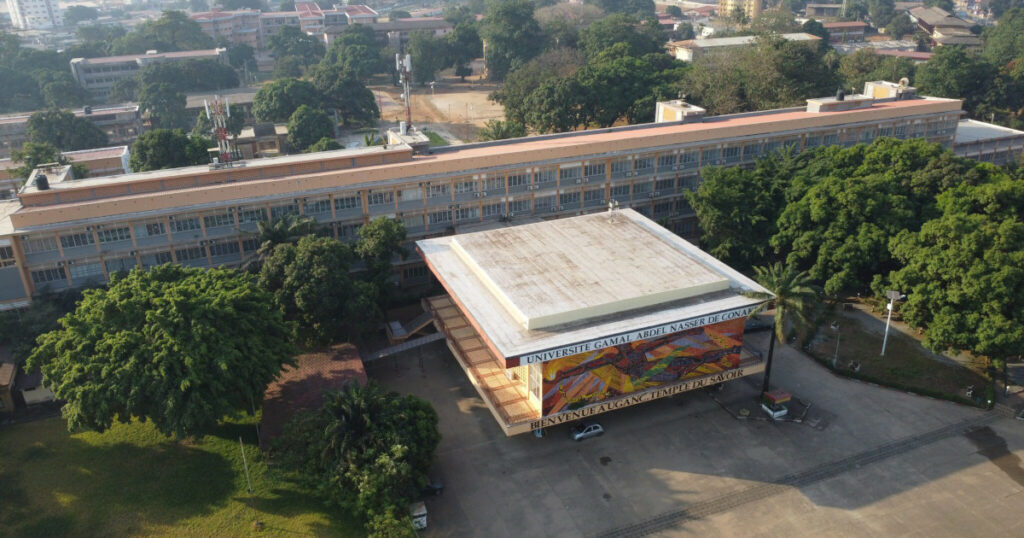The Pasteur Institute of Guinea continues its awareness campaign on zoonosis prevention for sustainable management of Guinea’s parks and forests
As part of the project ZOOSURSY project, funded by the European Union and led by the World Organisation for Animal Health, the Guinea Pasteur Institute (IPGui) organized a new awareness campaign on the risks of zoonoses associated with small mammals (“rodents”) in communities in the heart of the Pic du Fon classified forest in Guinea Forestière.
Accompanied by conservation officers from the National Directorate of Forests and Wildlife (DNFF) of the Ministry of Environment and Sustainable Development (MEDD), the IPGui team visited two new villages: Lamadou and Touréla. Village guides raised awareness of zoonotic risks among villagers in the local language (Konyaké), thereby facilitating the setting of traps in homes.
Raising awareness and understanding
A film (see below, in French, with english subtitles)) describes the different stages of the mission, from awareness-raising to the laboratory. It shows how activities, accompanied by entertaining questions and answers, are very effective tools for capturing attention, facilitating discussion with the population, and better understanding their perception of the disease and their behavior towards invasive animals.
On the scientific front, five species of micromammals were captured around homes and shops, with a predominance of Mastomys spp, a classic reservoir of the Lassa fever virus in West Africa. Samples were taken to assess the possible presence of the virus at the IPGui laboratory.
Feedback and sustainable action
This new mission was also an opportunity to gather feedback in the village of Balassou, which was visited in November 2022. This made it possible to report on the results obtained in the laboratory, but above all to test what the villagers had learned from our previous mission about zoonotic risks and prevention methods.
These IPGui activities are part of a long-term effort to attract and maintain the attention of local populations to the risks of animal-to-human disease transmission and to preserve the biodiversity of Guinea’s parks and forests.
This article was published by the Pasteur Institute of Guinea on LinkedIn and slightly edited by Afriscitech, and translated in english by Afriscitech.




